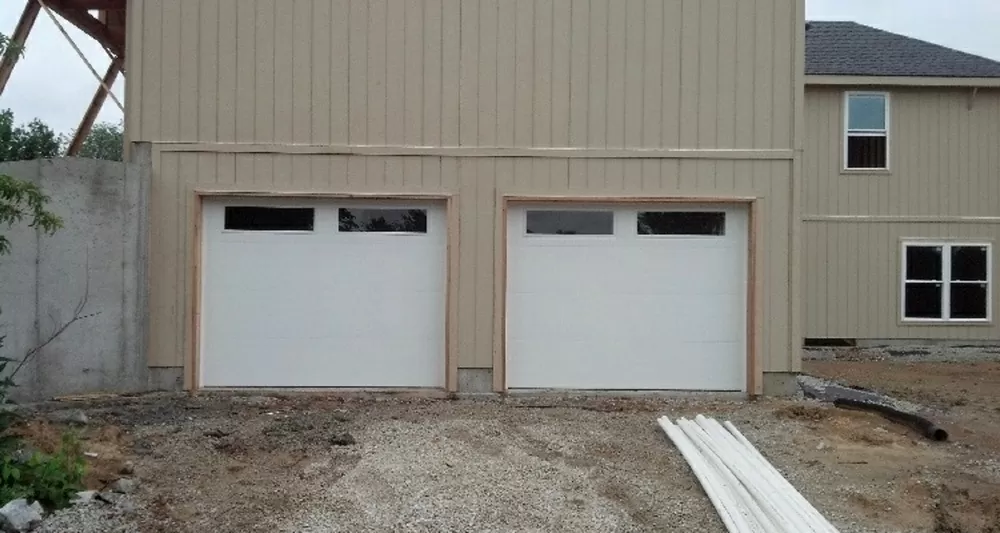As the chill of winter descends, homeowners find themselves navigating through various challenges, and one aspect often overlooked is the potential impact of cold weather on garage door openers. In this comprehensive guide, we explore the question, “Can Cold Weather Affect Garage Door Opener?” and delve into the nuances of how winter temperatures may influence the performance of this essential home device.

Introduction: Can Cold Weather Affect Garage Door Opener?
The garage door opener is a silent hero in our daily lives, providing convenience and security as it effortlessly lifts our garage doors. However, when winter arrives with its biting cold, it raises questions about how the cold temperatures might affect the functionality of this vital piece of home technology.
Exploring the Dynamics: Can Cold Weather Affect Garage Door Opener?
Let’s dissect the potential ways in which cold weather can influence the performance of a garage door opener and what homeowners can do to mitigate any adverse effects.
1. Lubrication Challenges
In colder temperatures, lubricants and oils used in the moving parts of a garage door opener tend to thicken. This can result in increased friction within the system, making it more challenging for the opener to smoothly lift the garage door. In extreme cases, the thickened lubricant might even cause the opener’s motor to strain.
To counter this, it is advisable for homeowners to use garage door lubricants specifically designed for colder temperatures. These formulations are engineered to maintain their viscosity in the cold, ensuring optimal performance even during winter.
2. Battery Performance
Garage door openers typically rely on batteries to function, and cold weather can have a notable impact on battery performance. Cold temperatures can reduce the efficiency of the battery, causing it to discharge more quickly than usual. In severe cases, a weakened battery might struggle to provide sufficient power to operate the opener, leading to malfunctions.
To address this concern, homeowners can consider installing a battery heater or opting for a garage door opener with a battery designed to withstand colder temperatures. Regularly checking and replacing the batteries as needed is also crucial to ensure smooth operation during the winter months.
3. Metal Contraction
The metal components of a garage door opener, such as chains and screws, may contract in cold weather. This contraction can lead to increased tension within the system, potentially affecting the alignment and operation of the opener. Homeowners should be vigilant for any unusual sounds or jerky movements when operating the garage door in cold weather, as these could be indicators of metal contraction issues.
Applying a high-quality garage door lubricant with anti-freeze properties to metal components can help reduce friction and mitigate the impact of metal contraction during colder temperatures.
4. Electronic Component Vulnerability
Extreme cold can also impact the electronic components of a garage door opener. The circuitry and wiring may become more brittle, increasing the risk of malfunctions or electrical failures. Homeowners should ensure that their garage door opener is installed in a well-insulated space to minimize exposure to harsh cold temperatures.
Consideration should also be given to investing in garage door openers with built-in temperature protection features. These advanced systems are designed to withstand a range of temperatures, ensuring consistent performance regardless of weather conditions.
Mitigating the Impact: Tips for Winterizing Your Garage Door Opener
Now that we’ve explored how cold weather can affect garage door opener performance, let’s delve into practical tips for homeowners to winterize their garage door openers and ensure reliable operation throughout the colder months.
- Choose the Right Lubricant: Opt for a garage door lubricant specifically formulated for colder temperatures. Regularly apply the lubricant to the moving parts of the garage door opener to maintain smooth operation.
- Insulate the Garage: Proper insulation helps regulate the temperature within the garage, providing a more stable environment for the garage door opener. Consider adding insulation to the walls and garage door itself.
- Battery Maintenance: Check the battery regularly and replace it if needed. Consider installing a battery heater or choosing a garage door opener model with a battery designed for cold weather.
- Professional Inspection: Schedule a professional inspection of your garage door opener before the winter season begins. A trained technician can identify potential issues and perform necessary maintenance.
- Install Temperature-Resilient Openers: Consider upgrading to a garage door opener designed to withstand a range of temperatures. These advanced models often come with additional features that enhance overall durability and performance.
Read too: Why Your Chamberlain Garage Door Opener Learn Button Is Not Working and How to Fix It? Troubleshooting Guide
Conclusion: Navigating Winter with a Reliable Garage Door Opener
In conclusion, while cold weather can pose challenges to the performance of garage door openers, proactive measures and proper maintenance can mitigate potential issues. By understanding how low temperatures affect various components and implementing practical solutions, homeowners can ensure that their garage door openers operate seamlessly throughout the winter.
Taking the time to winterize your garage door opener not only safeguards its performance but also contributes to the overall efficiency and longevity of this essential home technology.



Leave a Reply